 Bob Inglis, executive director of Mason’s Energy and Enterprise Initiative was ranked number 46 on the Politico 50 list for his work on what Politico called “the conservative case for fighting climate change.” The site’s top 50 ranking is described as a “guide to the thinkers, doers and visionaries transforming American politics in 2016.” Inglis tied at number 46 with advisor Katharine Hayhoe, associate professor of Atmospheric Science at Texas Tech University.
Bob Inglis, executive director of Mason’s Energy and Enterprise Initiative was ranked number 46 on the Politico 50 list for his work on what Politico called “the conservative case for fighting climate change.” The site’s top 50 ranking is described as a “guide to the thinkers, doers and visionaries transforming American politics in 2016.” Inglis tied at number 46 with advisor Katharine Hayhoe, associate professor of Atmospheric Science at Texas Tech University.
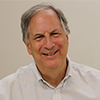 Robert Guttman, former director of Mason’s Schar School of Policy and Government, is currently teaching Political Journalism (COMM 374). The focus of the course is helping students express their opinions about the upcoming election while building their portfolios. One recent assignment was for students to debate the issues in class, performing as a specific candidate (Clinton, Johnson, or Trump).
Robert Guttman, former director of Mason’s Schar School of Policy and Government, is currently teaching Political Journalism (COMM 374). The focus of the course is helping students express their opinions about the upcoming election while building their portfolios. One recent assignment was for students to debate the issues in class, performing as a specific candidate (Clinton, Johnson, or Trump).
Below: Student discuss the issues of Election 2016 in COMM 374. Photos by Mimi Albano.
 Janette Muir, Associate Provost for Undergrad Education, is an expert in the role of political communication in campaigns. She can also talk about political advertising and presidential ads, political debates, gender differences in communication and problems with media coverage. She is very interested in engaging citizens in critical thinking about political campaigns and helping them to become better informed voters. In January 2008, she took a group of younger voters to the New Hampshire primaries to study youth engagement in politics.
Janette Muir, Associate Provost for Undergrad Education, is an expert in the role of political communication in campaigns. She can also talk about political advertising and presidential ads, political debates, gender differences in communication and problems with media coverage. She is very interested in engaging citizens in critical thinking about political campaigns and helping them to become better informed voters. In January 2008, she took a group of younger voters to the New Hampshire primaries to study youth engagement in politics.
 Jeremy Mayer is an associate professor in the Schar School of Policy and Government. His areas of research include American government and politics, elections, foreign policy, media politics, public opinion, racial politics and statistical methods.
Jeremy Mayer is an associate professor in the Schar School of Policy and Government. His areas of research include American government and politics, elections, foreign policy, media politics, public opinion, racial politics and statistical methods.
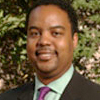 Michael Fauntroy, Assistant Professor of Public Policy, is the author of the recently released book “Republicans and the Black Vote.” He teaches courses in urban policy and American government and specializes in race and American politics. Prior to joining the faculty at Mason, he was an analyst in American national government at the Congressional Research Service, where he provided research and consultations for members and committees of Congress. He was also a civil rights analyst at the U.S. Commission on Civil Rights, where he conducted research on major civil rights issues.
Michael Fauntroy, Assistant Professor of Public Policy, is the author of the recently released book “Republicans and the Black Vote.” He teaches courses in urban policy and American government and specializes in race and American politics. Prior to joining the faculty at Mason, he was an analyst in American national government at the Congressional Research Service, where he provided research and consultations for members and committees of Congress. He was also a civil rights analyst at the U.S. Commission on Civil Rights, where he conducted research on major civil rights issues.
 Karina Korostelina, a social psychologist who teaches at George Mason’s School for Conflict Analysis and Resolution, has conducted a new nonpartisan study that examines Donald Trump’s rise to be his party’s nominee through a conflict analysis lens. She concludes that the reality TV personality and businessman aggressively evokes nostalgia for an America of a different era, empowers supporters with a myth of national identity, aggravates a penchant for intolerance and challenges the traditional balance of power.
Karina Korostelina, a social psychologist who teaches at George Mason’s School for Conflict Analysis and Resolution, has conducted a new nonpartisan study that examines Donald Trump’s rise to be his party’s nominee through a conflict analysis lens. She concludes that the reality TV personality and businessman aggressively evokes nostalgia for an America of a different era, empowers supporters with a myth of national identity, aggravates a penchant for intolerance and challenges the traditional balance of power.
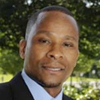 Mark Hopson, Assistant Professor of Communication, holds a PhD in Intercultural Communication from Ohio University, and MA and BA degrees in Organizational Communication from Western Michigan University. His research involves communication informed by race, culture, power, marginalization, gender, identity and difference. In his research, he examines the way mass media informs perceptions about race and culture. In addition, he has training and experience in violence prevention-education, diversity workshops, and academic and life skill building programs. He is currently working on a book titled, “The Talking Drum: Exploring the Role of Critical Memory in Intercultural Communication.” He can also discuss the way race and racial issues are used in media and communication in regards to presidential campaigns.
Mark Hopson, Assistant Professor of Communication, holds a PhD in Intercultural Communication from Ohio University, and MA and BA degrees in Organizational Communication from Western Michigan University. His research involves communication informed by race, culture, power, marginalization, gender, identity and difference. In his research, he examines the way mass media informs perceptions about race and culture. In addition, he has training and experience in violence prevention-education, diversity workshops, and academic and life skill building programs. He is currently working on a book titled, “The Talking Drum: Exploring the Role of Critical Memory in Intercultural Communication.” He can also discuss the way race and racial issues are used in media and communication in regards to presidential campaigns.
 Len M. Nichols, Professor and Director of the Center for Health Policy Research and Ethics is a renowned health care economist and former director of the Health Policy Program at New America Foundation (NAF), a nonprofit, nonpartisan policy research institute. Nichols joined Mason’s College of Health and Human Services as a professor and director of the Center for Health Policy Research and Ethics (CHPRE). In his position at NAF, Nichols successfully bridged the worlds of health economics and health services research among health system stakeholders and clinical leaders, elected and appointed policy officials and journalists. He founded and directed Health CEOs for Health Reform, an NAF sub-group that was pivotal in helping policy-makers see that delivery system reform and health insurance reform are necessary and feasible partners. During his time at NAF, Nichols testified frequently before Congress and state legislators and published widely in a variety of health journals, including a commentary on the health care debate, “Be Not Afraid,” which was published Feb. 24 in the New England Journal of Medicine. Before joining NAF, Nichols served as vice president of the Center for Studying Health System Change, principal research associate at the Urban Institute, senior advisor for health policy at the Office of Management and Budget during the Clinton administration and chair of the Economics Department at Wellesley College.
Len M. Nichols, Professor and Director of the Center for Health Policy Research and Ethics is a renowned health care economist and former director of the Health Policy Program at New America Foundation (NAF), a nonprofit, nonpartisan policy research institute. Nichols joined Mason’s College of Health and Human Services as a professor and director of the Center for Health Policy Research and Ethics (CHPRE). In his position at NAF, Nichols successfully bridged the worlds of health economics and health services research among health system stakeholders and clinical leaders, elected and appointed policy officials and journalists. He founded and directed Health CEOs for Health Reform, an NAF sub-group that was pivotal in helping policy-makers see that delivery system reform and health insurance reform are necessary and feasible partners. During his time at NAF, Nichols testified frequently before Congress and state legislators and published widely in a variety of health journals, including a commentary on the health care debate, “Be Not Afraid,” which was published Feb. 24 in the New England Journal of Medicine. Before joining NAF, Nichols served as vice president of the Center for Studying Health System Change, principal research associate at the Urban Institute, senior advisor for health policy at the Office of Management and Budget during the Clinton administration and chair of the Economics Department at Wellesley College.
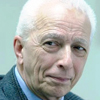 Richard Benedetto, Mason Law Professor, is a retired White House correspondent and columnist for USA Today and political columnist for Gannett News Service. He reported on local, state and national government and politics for nearly 40 years and continues to write political commentary for publications such as Politico. Benedetto is a founding member of USA Today , joining in 1982. He wrote the national newspaper’s first Page One cover story. Benedetto covered the White House during the administrations of Ronald Reagan, George H.W. Bush, Bill Clinton, and George W. Bush. He has covered every national political convention since 1972 and every presidential campaign since 1984.
Richard Benedetto, Mason Law Professor, is a retired White House correspondent and columnist for USA Today and political columnist for Gannett News Service. He reported on local, state and national government and politics for nearly 40 years and continues to write political commentary for publications such as Politico. Benedetto is a founding member of USA Today , joining in 1982. He wrote the national newspaper’s first Page One cover story. Benedetto covered the White House during the administrations of Ronald Reagan, George H.W. Bush, Bill Clinton, and George W. Bush. He has covered every national political convention since 1972 and every presidential campaign since 1984.
Martin Sherwin is a professor of history in the College of Humanities and Social Sciences. He’s area of expertise include U.S. history, particularly Cold War-era politics, diplomacy and culture.
Jennifer Victor is a political scientist at the Schar School of Policy and Government who specializes in Congress, legislative politics, interest groups and political parties. She is a veteran in front of the camera and can clearly articulate an academic analysis to the conversation.
Mark J. Rozell, dean of the Schar School of Policy and Government, is the author of nine books and editor of 20 books on various topics in U.S. government and politics including the presidency, religion and politics, media and politics, and interest groups in elections.
Bryan Caplan, Associate Professor of Economics, is author of “The Myth of the Rational Voter: Why Democracies Choose Bad Policies” and an adjunct scholar of the Cato Institute. Caplan’s articles have appeared in the American Economic Review, the Economic Journal, the Journal of Law and Economics, Social Science Quarterly and numerous other outlets. Caplan’s area of expertise is voter irrationality.
John Farina, Associate Professor in the Religious Studies Department, is an attorney that has practiced corporate and church-state law and published articles on current topics on law and religion. He is the author of “Beauty for Ashes: Spiritual Reflections on the Attack on America” and “Great Spiritual Masters: Their Answers to Six of Life’s Questions.” He is currently writing “The Intelligible Sphere: Theory of Religion in Civil Society.”
Michael McDonald, Assistant Professor of Government and Politics, is a senior non-resident fellow at the Brookings Institution. His research shows that voter turnout is not declining, the ineligible population is rising. His research on redistricting warns of the uncompetitive nature of elections as a result of redistricting. McDonald has worked as a redistricting consultant for several states and has authored several articles and op-eds on voting and elections.
James Pfiffner, Professor in the School of Public Policy, has lectured at at the State, Justice and Defense Departments, in addition to universities throughout the United States and Europe. He has written or edited 10 books on the presidency and American government and served in the director’s office of the U.S. Office of Personnel Management. Pfiffner is a decorated war veteran and has been listed in “Who’s Who in America” in 2000. His areas of expertise are the U.S. presidency, American national government, and public management.
Peter Pober, Director of the Forensics Team and Associate Professor of Communication, is the director of the nationally ranked forensics team and an expert in public speaking and presidential debates. He can discuss the importance of public speaking and communication in campaigning, and how public speaking can affect one’s image. He can also give tips on effective public speaking for someone in a leadership role.
Justin Gest, a political science professor and expert on immigration at Mason’s Schar School of Policy and Government, is the author of the “The New Minority,” detailing the rise of the American working class and its impact on the presidential election.
Faculty information courtesy of Office of Communications and Marketing.


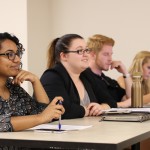



Comments Closed